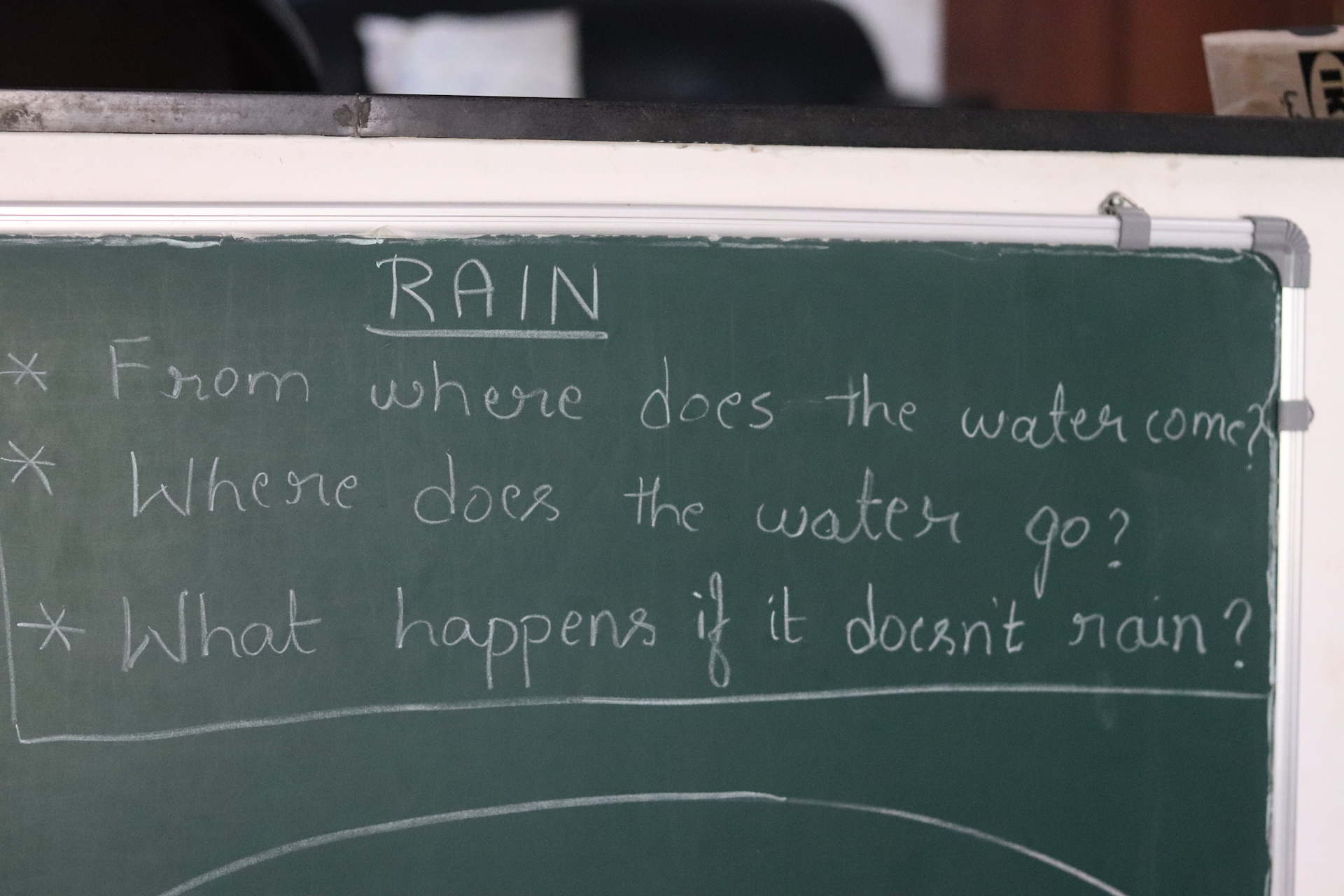As a child, whenever I got myself to stick around for long in the vicinity of this phenomenon called “question”, it was always followed by something called “answer”. Q&A – Questions and Answers. They never existed in isolation. It was scary to just be with a question. If there was a question that I no answer for, I feared being perceived as stupid. My school loved to have “General Knowledge” quizzes. I almost always had no answer to questions like –
What is the capital of Namibia?
Who won the last Olympics 100 meters?
Who is the current Mr. India?
How many rivers are there in India?
Who is the deputy chief minister of Gujarat?
Not knowing answers to these questions was still Ok. At best I would lose the quiz and be teased by my classmates who knew the answers to these questions and were celebrated as smart and intelligent kids.
But I better know answers to questions that show up at the end of each chapter in my textbook, whether or not I know the reason for knowing those answers. If I don’t know those answers, I must be willing to be labeled as “poor student”.
As an adult, I began to see how much of my life and career were about being with un-answered questions.
Like for example, when I take up a software project as a consultant; there is no answer to many of the questions that face my customers and their users. Answers have to be uncovered at times, created at times and searched for by referring guide books at times. In all cases, there are no pat answers to questions. Much of my adult life has been about staying with questions.
So when my wife Nandini came up with this idea of leaving Advay (our 8-year-old) grappling with a question for days and maybe even a week at a stretch, I found it fascinating. In the first week, she asked Advay this question – “Why is the sky blue?”

The agreement with Advay was that he should not attempt to answer the question right away. That he should ponder over the question, maybe even look at the sky, ask his friends, his grandparents, read books, come up with theories by himself and so on; until he has had a chance to experience the question and the process of seeking answers fully. After a few days, he should come up with 4-5 different plausible answers to the question.
One day after he pondered over that question,
Advay said – “The sky is blue because much of the earth has water and sky can see mostly water. So it is blue.”
Nandini – “Why should the sky be blue if it can see mostly water on earth?”
Advay – “Because water is blue no…”
Nandini – “Really, take a look at the water in your tumbler, it is not blue…”
Advay looked at her with an expression that almost conveyed – ‘not this water, but the water in rivers and ocean is blue.’ But he felt that Nandini would question that also, so he stayed put for a while and pondered more.
After a few minutes, he shifted gears and said – “Seeeeei… Krishna’s body color is blue and Shiva’s neck color is blue no, that’s why the color of the sky is blue.” Nandini nodded along, but she neither accepted it nor rejected. But the game was that Advay should come up with 4-5 plausible answers. So even if this answer was one of the plausible answers, he still had 3-4 more to go.
After about 5 minutes, he continued – “Seeeeei….., the sun heats up water which becomes vapor and goes to the sky, where the water again becomes cold and hence it becomes blue..”
Nandini – “But cold water is like ice no. what’s the color of ice cubes in our fridge?”
Advay – “White…. but…”, it appeared that he checkmated himself in his head. So he continued thinking for some more time.
Nandini – “If you told me that the reason why clouds are white is because of this, maybe I would have accepted it, but…”
Another 5 minutes later he said – “Amma because the sun is behind the clouds, I think when cold ice meets the sun’s heat it will leave ….. ok, let me do an experiment and then confirm. I want to put cold ice in boiling hot water and see what color comes out..”
He is yet to do that experiment and the question remains open still.
I am fascinated by this idea of letting children keep questions open. I will come back and update this blog when Advay makes more progress. Nandini plans to keep this one question per week thing going on for a while.
Update: 1st Aug 2019. New question for Advay:
